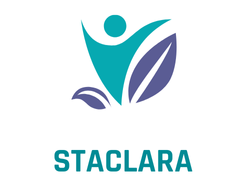Peer mentoring has emerged as a transformative tool in the fight against substance abuse. By fostering genuine connections and shared experiences, this approach addresses the complexities of recovery more effectively than traditional methods. The impact is significant: reduced relapse rates and enhanced emotional support. This shift not only empowers individuals struggling with addiction but also builds a community of resilience. Explore how peer mentoring is revolutionising recovery and providing hope where it’s needed most.
Overview of Peer Mentoring in Substance Abuse Recovery
Peer mentoring plays a crucial role in substance abuse recovery, providing a unique support system that complements traditional treatment methods. At its core, peer mentoring involves individuals who have successfully navigated their own recovery journey offering guidance and support to those currently facing similar challenges. This relationship fosters a sense of understanding and trust, as both parties share common experiences and goals.
Also to read : Exploring the Power of Virtual Reality Therapy in Overcoming Phobias
Historically, peer mentoring programs have evolved significantly. Initially, they were informal networks within recovery communities, but over time, they have become structured programs integrated into formal treatment plans. This evolution reflects the growing recognition of the value of lived experiences in promoting recovery.
The importance of social support in substance abuse recovery cannot be overstated. It provides emotional encouragement, practical advice, and a sense of belonging, which are all vital components for sustaining long-term recovery. Peer mentors serve as role models, demonstrating that recovery is possible and offering hope to those who may feel isolated or discouraged. Through shared experiences, they help mentees build resilience and develop coping strategies, reinforcing the belief that recovery is an achievable goal.
Also read : Unlocking the Paleo Diet: A Comprehensive Guide to Alleviating Hashimoto”s Thyroiditis Symptoms
Statistical Evidence of Peer Mentoring's Impact on Relapse Rates
Research into relapse rates provides compelling evidence of the effectiveness of peer mentoring in substance abuse recovery. Numerous studies highlight that individuals participating in peer mentoring programs experience significantly lower relapse rates compared to those who do not. This suggests that the shared experiences and support from peer mentors play a crucial role in maintaining sobriety.
A comparative analysis of relapse rates reveals that those involved in peer mentoring have a reduction in relapse incidents, often attributed to the continuous emotional and practical support offered by mentors. This support system fosters accountability and motivation, which are essential for long-term recovery.
Furthermore, research findings indicate that the benefits of peer mentoring extend beyond immediate relapse prevention. Long-term recovery outcomes are positively influenced by the sustained encouragement and guidance provided by peer mentors. This ongoing support helps individuals build resilience and develop effective coping strategies, ultimately enhancing their ability to maintain recovery over time.
Personal Testimonials and Case Studies
Exploring the real-life impact of peer support in substance abuse recovery offers valuable insights. Personal stories and success stories provide a profound understanding of how peer mentoring can transform lives.
Participant Experiences
Participants often recount how engaging in peer mentoring has been pivotal in their recovery journey. These personal stories highlight the emotional and psychological benefits of having a mentor who understands their struggles. Many describe the relief and empowerment felt when connecting with someone who has walked a similar path, reinforcing the notion that they are not alone in their fight against addiction.
Transformational Journeys
Success stories of individuals who have thrived through peer mentoring illustrate the peer support impact. Case studies reveal significant improvements in participants' ability to maintain sobriety, showcasing reduced relapse rates. These transformational journeys underscore the importance of shared experiences in fostering resilience and hope. Participants often emerge with a renewed sense of purpose and confidence in their ability to navigate life's challenges.
Overcoming Challenges
While the path to recovery is fraught with obstacles, the guidance of a peer mentor can make a substantial difference. Participants report that the encouragement and accountability provided by mentors help them overcome hurdles that might otherwise lead to relapse. These success stories emphasize the power of peer support in addressing both emotional and practical challenges, ultimately contributing to sustained recovery.
Expert Opinions on Peer Mentoring Programs
Understanding the expert insights into peer mentoring programs can significantly enhance their effectiveness in substance abuse recovery. Interviews with addiction specialists reveal that peer support is invaluable, offering unique benefits that traditional methods may not provide. These specialists emphasize the importance of shared experiences, which foster empathy and trust, crucial elements in the recovery process.
Evaluating existing peer mentoring programs highlights various methodologies that contribute to their success. Effective programs often incorporate structured training for mentors, ensuring they possess the necessary skills to support their mentees. Specialists recommend that these programs include ongoing supervision and evaluation to maintain high standards and adapt to the evolving needs of participants.
To further enhance the effectiveness of peer mentoring, experts suggest implementing best practices such as personalized mentoring plans. These plans should be tailored to the individual's recovery stage and specific challenges, providing targeted support. Additionally, integrating peer mentoring into formal treatment plans can amplify its impact, creating a comprehensive support system that addresses both emotional and practical aspects of recovery.
Best Practices for Implementing Peer Mentoring Programs
Implementing a successful peer mentoring program requires careful planning and adherence to key components that ensure effectiveness. Central to this is the establishment of clear guidelines that outline the roles and responsibilities of both mentors and mentees. These guidelines help in maintaining a structured approach, which is crucial for achieving desired outcomes in substance abuse recovery.
Training and Support for Peer Mentors
Providing comprehensive training for peer mentors is essential. This training should cover effective communication techniques, empathy building, and crisis management skills. By equipping mentors with these tools, programs can ensure that they are prepared to offer meaningful support to their mentees. Continuous support and supervision are also vital, allowing mentors to reflect on their experiences and receive feedback to enhance their mentoring capabilities.
Integrating Peer Mentoring into Treatment Frameworks
To maximize the impact of peer mentoring, it is important to integrate these programs into existing treatment frameworks. This integration can be achieved by aligning mentoring activities with the therapeutic goals of traditional treatment plans. Collaboration between program coordinators and clinical staff ensures that peer mentoring complements other recovery efforts, creating a cohesive support network that addresses both emotional and practical needs.
Resources for Peer Mentoring Initiatives
Access to support resources is pivotal for the development and sustainability of peer mentoring programs in substance abuse recovery. A plethora of organizations provide valuable resources that can guide the establishment and enhancement of these initiatives. These organizations often offer training materials, best practice guidelines, and networking opportunities to connect mentors with mentees effectively.
Directory of Organizations
A comprehensive directory of organizations offering peer mentoring resources can be a valuable tool for program development. Such directories typically include information on national and local groups that specialize in substance abuse recovery, providing contact details and descriptions of available resources. These organizations can offer crucial support resources such as training workshops, educational materials, and mentorship frameworks.
Funding Opportunities
Securing funding is essential for the successful implementation and expansion of peer mentoring programs. Various funding opportunities exist, ranging from government grants to private foundation support. Identifying and applying for these funds can significantly aid in program development, allowing for the recruitment and training of mentors, as well as the creation of engaging program activities.
Community Engagement Strategies
Effective community engagement is key to promoting peer support initiatives and ensuring their success. Strategies may include hosting informational sessions, creating awareness campaigns, and building partnerships with local organizations. By fostering community involvement, programs can enhance their visibility and attract both mentors and mentees, thereby strengthening the overall impact of peer mentoring in substance abuse recovery.











